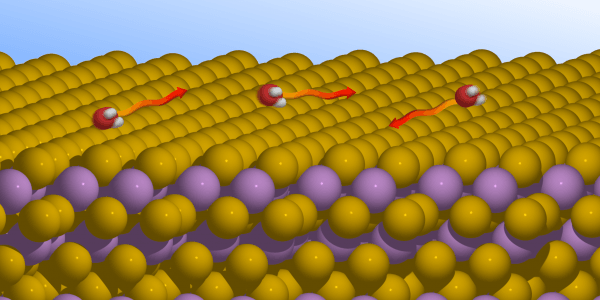Water is all around us and essential for life. Nevertheless, research into its behaviour at the atomic level – above all how it interacts with surfaces – is thin on the ground. Thanks to a new experimental method, TU Graz researchers have now delivered insights into the atomic-level movement of water molecules, which they outline in a paper in Nature Communications.
Water is a mysterious substance. Understanding how it behaves at the atomic level is still a challenge for experimental physicists, as light hydrogen and oxygen atoms are difficult to observe using conventional experimental methods. This is especially true for any researcher looking to study the microscopic movements of individual water molecules that run off a surface in a matter of picoseconds. As they report in their paper, entitled ‘Nanoscopic diffusion of water on a topological insulator’, researchers from the Exotic Surfaces working group at TU Graz’s Institute of Experimental Physics joined forces with counterparts from the Cavendish Laboratory at the University of Cambridge , the University of Surrey and Aarhus University. Together, they made significant advances, performing research into the behaviour of water on a material that is currently attracting particular interest: a topological insulator called bismuth telluride. This compound could be used to build quantum computers. Water vapour would be one of the environmental factors to which applications based on bismuth telluride might be exposed during operation.
Read more at Graz University of Technology
Image: Schematic representation of the movement of water molecules on a topological insulator. CREDIT: Anton Tamtögl


